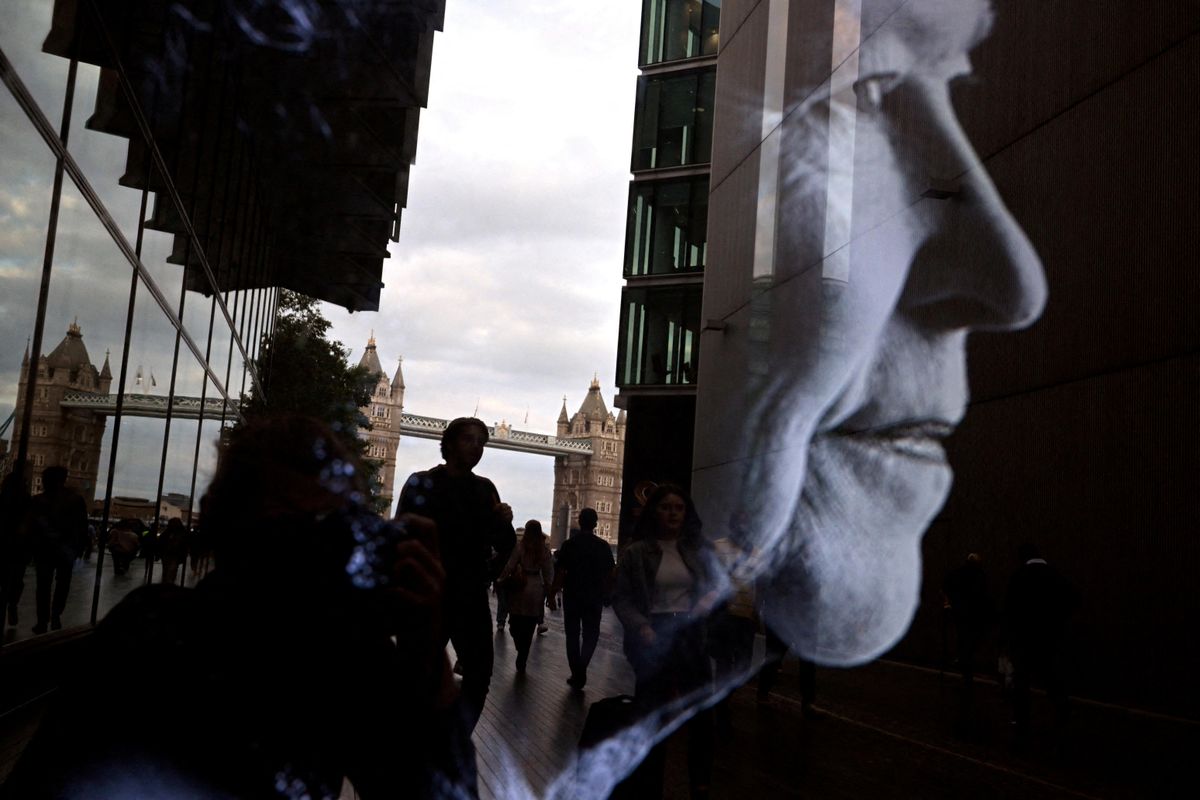UK bids farewell to Elizabeth II amid trying times
Some 2,000 people attended the funeral for Queen Elizabeth II on Monday, including several hundred current and former world leaders, royals, and other dignitaries. US President Joe Biden, Canadian PM Justin Trudeau, French President Emmanuel Macron, and leaders from much of the Commonwealth, attended the ceremony at Westminster Abbey, where Elizabeth II was married and crowned. (Invitations to attend the state funeral, the first since Winston Churchill died in 1965, were sent to heads of state or government of nearly every country except Syria, Venezuela, Afghanistan, Russia, Belarus, and Myanmar.)
Hundreds of thousands visited the British capital for the queen's lying-in-state to pay their respects and thank her for her 70 years on the British throne. Once the ceremony is over, all eyes will turn to her son and successor, King Charles III, who takes over at a moment of deep uncertainty in the UK. While the monarch’s role is not political, a worsening cost-of-living crisis and energy crunch – combined with the revolving door of prime ministers since 2016’s Brexit vote – have left many Britons feeling disillusioned with the country’s leadership. What’s more, the 73-year-old Charles is hardly as popular as his beloved mother, and his ascent to the throne has already ignited a debate about the future of the British monarchy, both at home and in Commonwealth nations where he is now the nominal head of state.
Symbolically, Elizabeth II’s funeral takes place a day after the eighth anniversary of the 2014 Scottish independence referendum, when 55% of Scots voted to remain part of the UK. But that was before Brexit … and with the more popular Queen Elizabeth in Buckingham Palace. Will her passing drive more support for Scotland to ditch the UK? We’ll be watching pro-independence Scottish First Minister Nicola Sturgeon, who announced earlier this year that she wants to hold a second plebiscite on Scottish independence as soon as next year.
EU calls for international tribunal to investigate Russian crimes
The European Union presidency has called for an international tribunal to investigate Russian atrocities after mass graves were found on territory in the northern Kharkiv region recently reclaimed by Ukrainian forces. The Czech Republic, which currently holds the EU rotating presidency, made the call. Meanwhile, Ukrainian President Volodymyr Zelensky said that 440 bodies were found in mass graves in the city of Izium, though investigators say they expect that number to rise. What’s more, at least 10 torture chambers were discovered in the same city recently recaptured amid the Ukrainian northeastern counteroffensive that’s seen Kyiv recapture 6,000 square kilometers of land. The United Nations said it was dispatching a team to assist in the investigation in Kharkiv, while Ukrainian investigators pledged to build a war crimes case against Russia. Meanwhile, in a "60 Minutes" interview on Sunday, President Joe Biden warned Russian President Vladimir Putin of “consequential” American action if the Kremlin uses nuclear weapons in the next stage of the war. Biden’s warning comes amid fears that Putin, increasingly isolated diplomatically, under fire at home, and frustrated by the lack of progress in the war, could up the ante by using unconventional weapons.
In Armenia, Pelosi blames Azeris for recent hostilities
House Speaker Nancy Pelosi led a congressional delegation to Armenia over the weekend, making her the highest-ranking US official to visit the former Soviet republic since it gained independence in 1991. The visit comes amid a violent flareup between Armenian and Azerbaijani troops near the long-disputed territory of Nagorno-Karabakh, an enclave inside Azerbaijan with an ethnic Armenian majority that has long claimed independence. At a press conference with the speaker of the Armenian National Assembly, Pelosi expressed support for Yerevan and condemned Baku for the latest round of aggression – though both sides blame the other for recent fighting that’s killed more than 200 people. In 2020, a weeks-long war between the two sides led to 6,500 deaths and large swaths of territory being handed over to Baku as part of a Russian-backed truce. (Moscow is technically treaty-bound to defend Armenia.) Pelosi’s visit comes just weeks after her controversial trip to Taiwan, which prompted a stern response from Beijing and irked the White House. Some analysts say that oil-producing Baku, feeling emboldened by increased global demand for oil and gas as well as Moscow’s preoccupation with Ukraine, took advantage of the geopolitical situation to relaunch hostilities. A ceasefire took hold in Nagorno-Karabakh in recent days, though some are skeptical that it’ll hold.


















